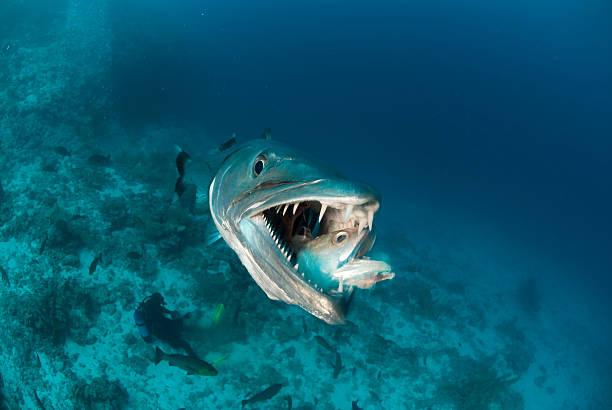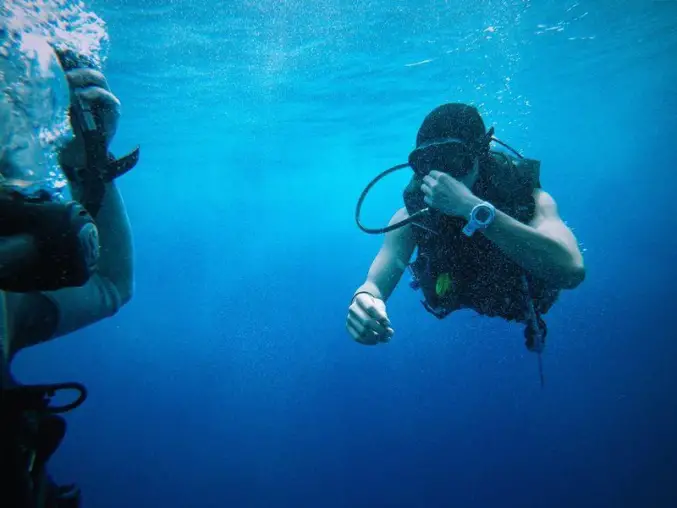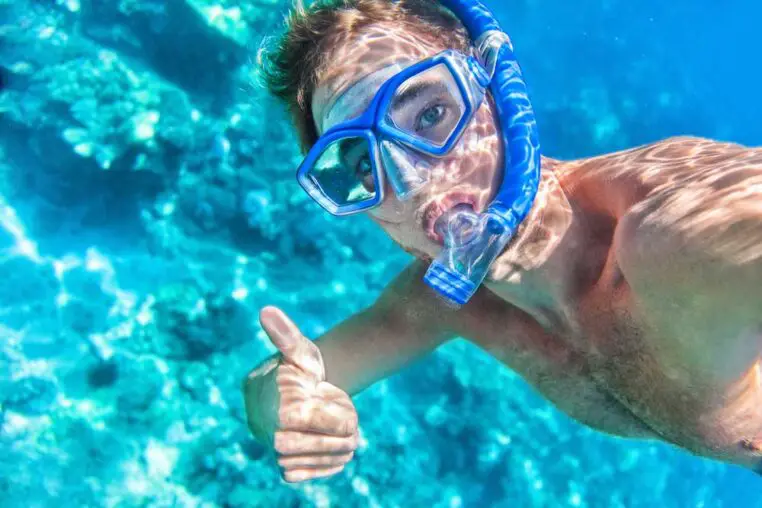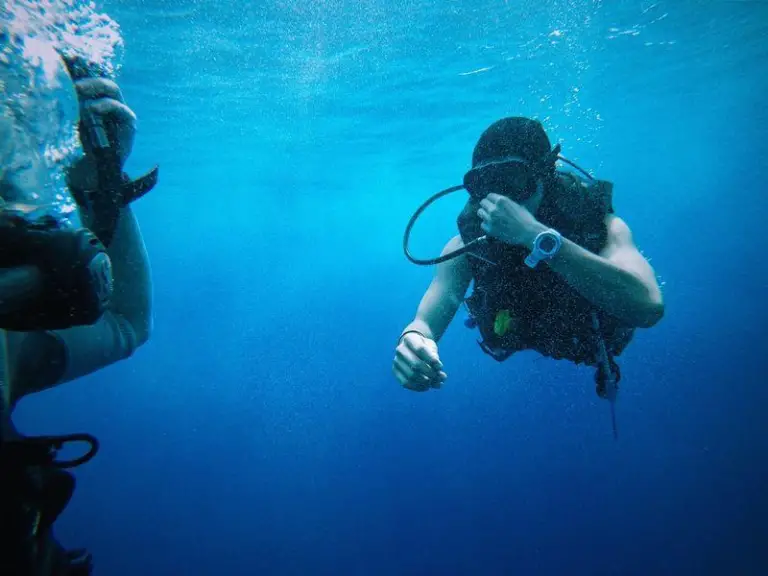
When most people think of potential dangers lurking in the waters while snorkeling, their minds often jump to the image of menacing sharks. However, the reality is that encounters with barracudas are far more common.
Despite being significantly smaller than sharks, barracudas can be just as intimidating with their rows of razor-sharp teeth and the ability to accelerate to speeds of 25-30 mph in an instant. This raises an important question: Are barracudas a genuine threat to snorkelers?
In this comprehensive article, we will unravel the mysteries surrounding barracudas and their interactions with snorkelers. We will address common misconceptions about these enigmatic creatures, delve into the psychology behind their behavior, and explain why, in most cases, snorkeling alongside barracudas is a safe and awe-inspiring experience.
The Curious Case of Barracuda Behavior

Barracudas may appear enigmatic, with their pitch-black, lifeless eyes leaving us wondering about their intentions. However, understanding their behavior can help demystify their actions.
- You Look Like a Food Provider: Barracudas have keen instincts for food sources. If they’ve encountered humans in the past who have fed them, they might associate us with potential snacks. Unfortunately, this practice of feeding wild animals can lead to dangerous consequences as it emboldens barracudas and may result in unpredictable interactions.
- You’re a Large Predator: Barracudas, being opportunistic hunters and scavengers, might perceive snorkelers as apex predators. They might assume that we hunt fish, leaving behind remnants for them to scavenge effortlessly. Once they realize that we’re not their typical prey, they usually lose interest.
- Shiny Objects: Reflective or shiny objects, such as jewelry, can attract the attention of barracudas and other marine predators. In the water, these objects can resemble the shimmering scales of small fish, making them potential targets. Removing or covering shiny items is advised to avoid unwanted attention.
- Scent of Fish: Barracudas, like many marine predators, may use their sense of smell to locate potential prey. If you’ve handled fish or have a catch in a net, you might become particularly enticing. Snorkeling before handling fish or seafood is recommended to avoid being mistaken for a meal.
Debunking Common Barracuda Myths
While it’s essential to exercise caution around marine predators, some myths about barracudas can needlessly heighten concerns. Let’s dispel a few of these misconceptions:
- Barracuda as a Threat to Humans: Despite their formidable appearance, barracudas pose little threat to humans. Barracuda attacks are exceedingly rare, with provocation or the presence of shiny objects often being contributing factors. The chances of an unprovoked attack are minimal.
- Chomping on All Shiny Objects: Barracudas are discerning predators and won’t bite at every shiny object in the ocean. Their vision is generally good enough to distinguish humans from potential prey. The issue arises when visibility is poor, and shiny objects might be mistaken for smaller fish.
- Barracuda are Poisonous: Barracudas are not inherently poisonous, but they can carry a risk of transmitting Ciguatera poisoning, a type of food poisoning caused by consuming contaminated fish. While not all barracudas are poisonous, it’s best to avoid consuming them to steer clear of potential health risks.
Conclusion
While no predator with sharp teeth can be considered entirely safe, there are compelling reasons not to fear barracudas while snorkeling.
Barracudas are primarily scavengers rather than aggressive hunters. Their smaller size compared to humans, coupled with their innate curiosity, often leads to non-threatening encounters.
These creatures are not omnipresent, and they typically won’t approach snorkelers unless provoked. In the rare event of an attack, barracudas tend to cause lacerations rather than life-threatening injuries, as seen in shark attacks.
By adhering to safety guidelines such as removing shiny objects, refraining from handling fish before snorkeling, and avoiding provocation, you can coexist peacefully with barracudas during your snorkeling adventures. Despite their intimidating appearance, barracudas are unlikely to attack snorkelers unprovoked, even when snorkeling alone.









